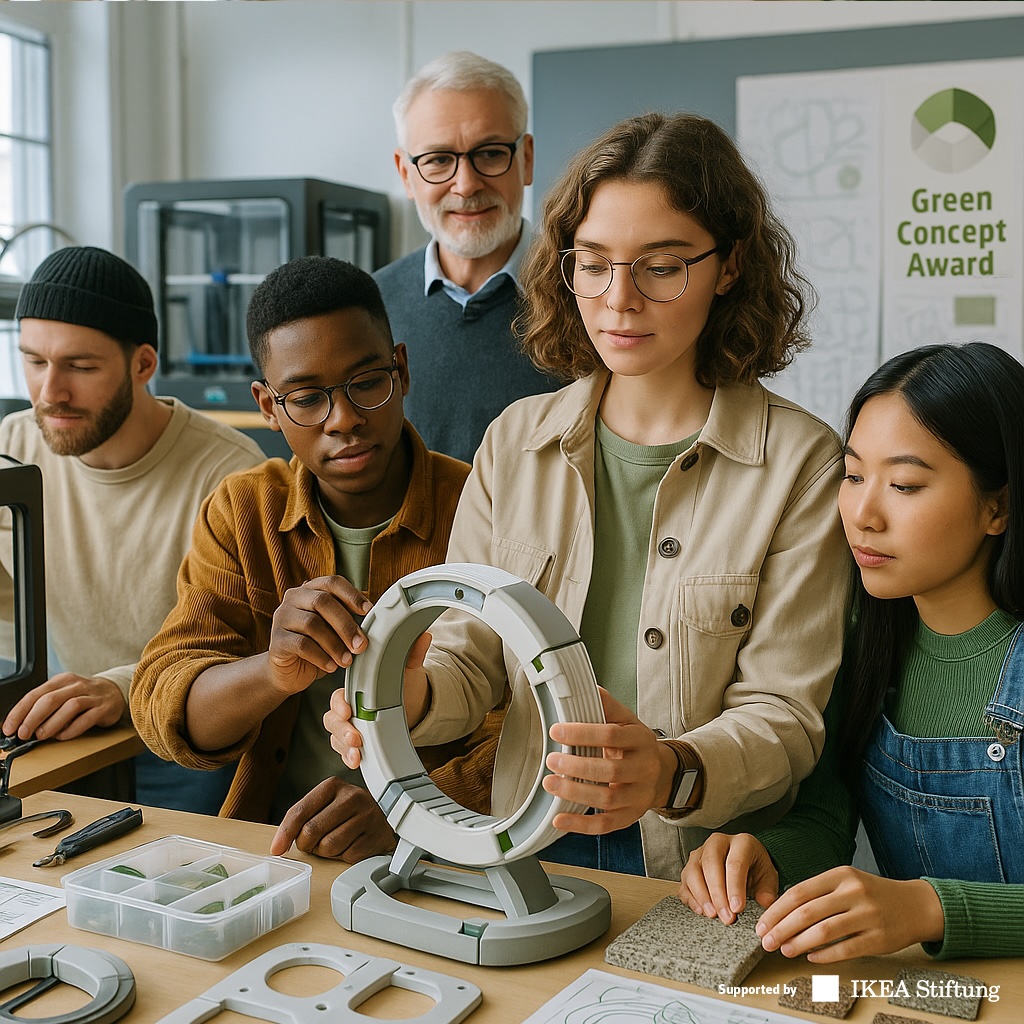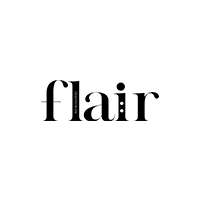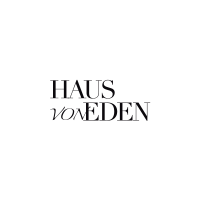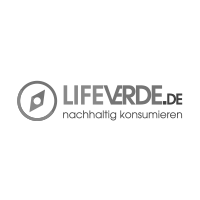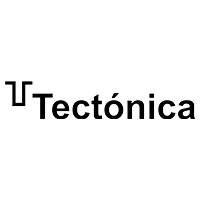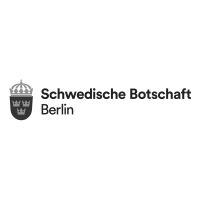Design the Future. Qualify. Be Seen.
Legacy in Action
Since 2013, the Green Concept Award 2026 honors outstanding products and services — not yet on the market.
Certified by the Green Future Club and supported by the IKEA Stiftung, the award recognizes future-oriented innovations that address environmental, social, and functional challenges through design excellence.
Who Can Submit?
- Students & graduates (maximum 1 year post-graduation)
- Start-ups with early-stage prototypes
- Design studios developing sustainable concepts
- University project groups and individual creatives
Perspectives & Benefits
Why Participate?
- Free entry for students and recent graduates
- Recognition through the official award seal (Finalist & Winner)
- Submission check before jury selection plus final detailed feedback from the jury
- Media & press visibility via exhibitions, social media, and the Green Trend Book
- Public vote exposure with over 50,000 votes annually
- Training, feedback through webinars, feedback loops, and the Green Cells support program
- Invitation to the award ceremony
- Become reference point for others >> check last year’s winners
Categories
Submissions are accepted in 14 categories.
Each category distinguishes:
- Best Concept
- Best Product - Established Company (via the Green Product Award)
- Best Product - Start-up (via the Green Product Award)
Schedule 2025/26
6 February 2026 Announcement of All Finalists
February 2026 Jury Meeting
Spring 2026 Award ceremony & summit in Berlin
Throughout the year, the Green Future Club offers activities related to the topic of sustainable innovation.
Fees
Participation for students and graduates is free of charge. All participants are required to pay a registration fee of €450. For established companies, there is an additional finalist package fee of €1,450 upon nomination. Both prices are exclusive of VAT. Additional services such as the submission pre-check, your portrait in the Green Trend Book 2026, the Green New Deal Check and workshops can also be booked. >>To the fees
The Jury
An international jury of experienced experts reviews the submissions with their know-how to determine the winners. Finalists and winners receive individual point based feedback.
Fachmagazin baby&junior
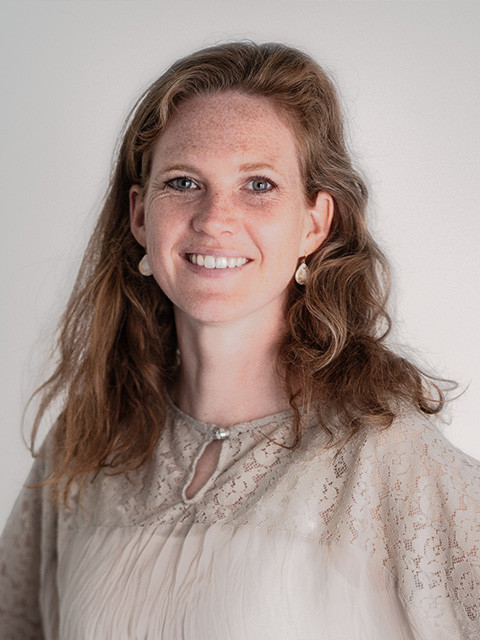
Since 2020, Katja Keienburg has led the international trade magazine baby&junior, covering the children’s industry in over 30 countries. A mother of two, she combines professional knowledge with personal insights, reporting on retail, e-commerce, and manufacturers. Her focus includes sustainability in baby and children’s products, highlighting environmentally friendly solutions and climate-neutral business practices. She offers a consumer-oriented yet professional view of sustainable family products.
MELICHAR Bros. & epda
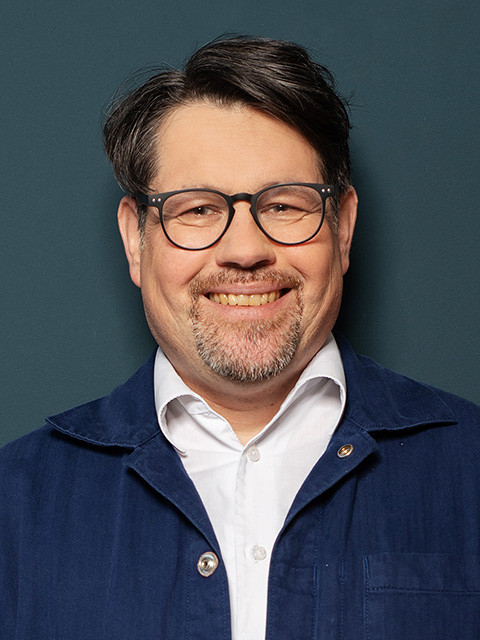
Founder of MELICHAR Bros. and Vice President of the European Brand & Packaging Design Association, Uwe Melichar is a leading authority on circular packaging. Previously managing partner at Factor, he worked with global brands like adidas, Bosch, and Nestlé. He is a Red Dot juror, Pentawards judge, and keynote speaker worldwide. His motto “Increase value, decrease waste” reflects his dedication to reducing environmental impact while elevating brand design.
Luxiders Magazine & 001 Agency
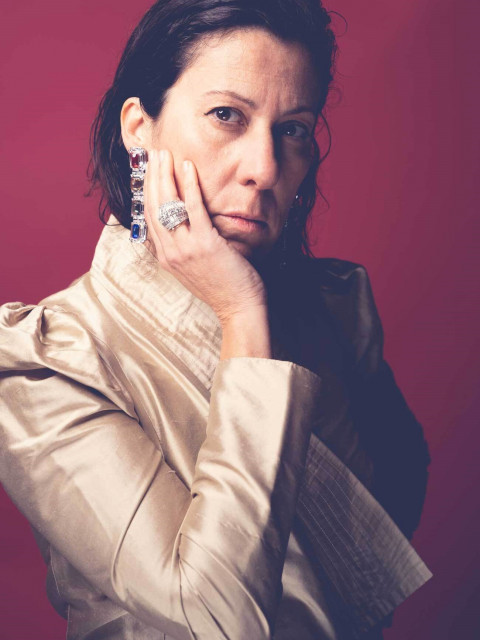
Journalist and editor-in-chief of Luxiders Magazine, Belvis Soler has written about fashion and design for over 20 years. She also directs the creative agency 001 Agency. Through Luxiders, she elevates sustainable brands with strong visuals and curated storytelling, positioning sustainability as aspirational and innovative within the fashion and lifestyle sectors.
TRENDFILTER®
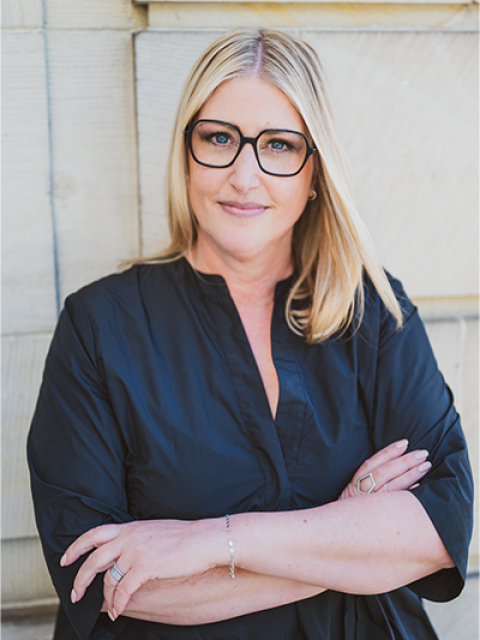
Interior designer and trend expert, Katrin de Louw founded TRENDFILTER® in 1997. She advises the furniture industry on materials, colors, and trends, with a focus on ecology and sustainability. She also founded FURNITURE FUTURE FORUM and COLORNETWORK®, initiatives that promote sustainable design and circular color concepts. Recognized as a leading trendscout, she shapes the future of interiors.
Parsons School of Design—The New School
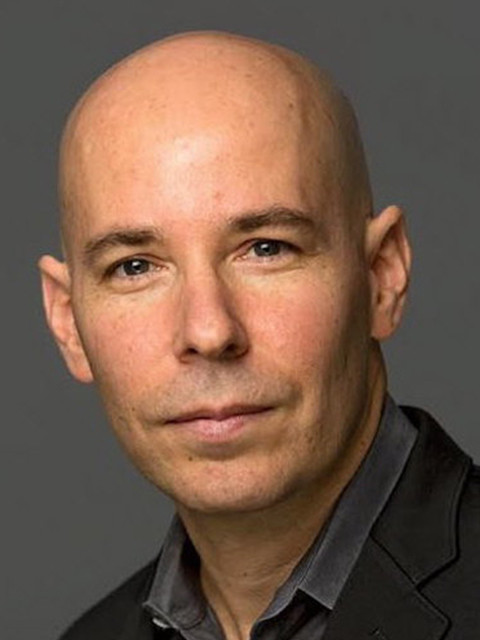
Assistant Professor at Parsons School of Design in New York, Raz Godelnik researches sustainable business models and corporate responses to the climate crisis. He co-founded green start-ups Eco-Libris and Hemper Jeans and authored Rethinking Corporate Sustainability in the Era of Climate Crisis. His work connects entrepreneurship, education, and sustainability, making him an expert in strategic approaches to green business.
Architect and cultural manager
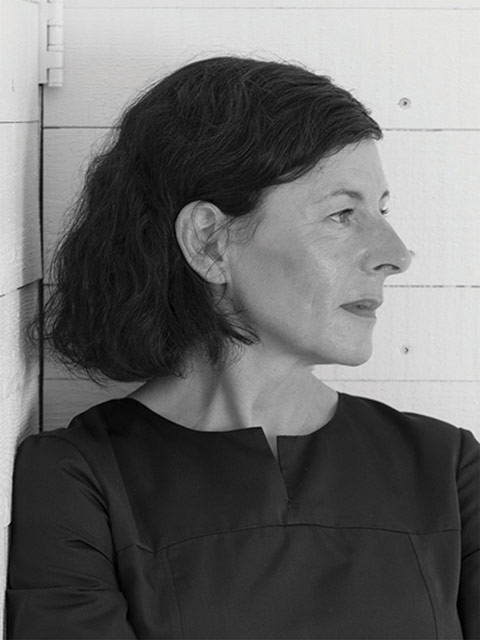
Architect and cultural manager, Meike Weber worked for 15 years at DETAIL magazine, developing content and research on architecture, megatrends, and the future of building. She now teaches at HAWK Hildesheim and advises NGOs, academia, and politics on architecture and sustainability. Her work emphasizes foresight and the role of research in shaping urban futures.
Fabriek Fris | Anderlus
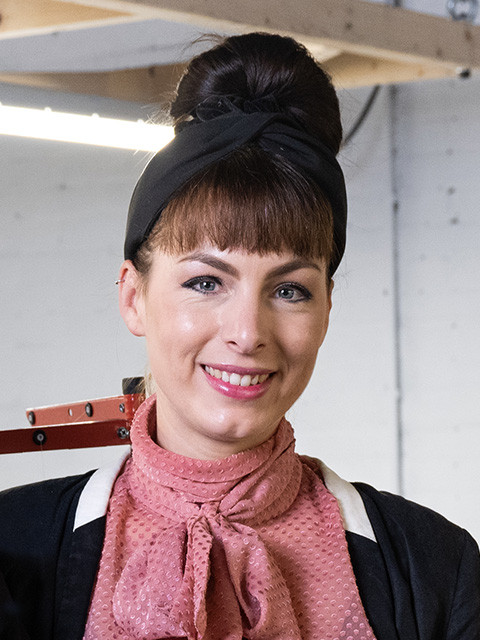
Fashion and textile designer, Rosan van Boven co-founded Fabriek Fris to produce fair, local textiles that create social impact and better working conditions. With the project MAEAN (waste to workwear), she won the Food Valley Innovation Award. She also co-founded Anderlus, which transforms textile waste into new materials and connects waste producers with designers. Her entrepreneurial work demonstrates how creativity and science can close resource loops.
CEO + Founder of The Circular Materials GmbH
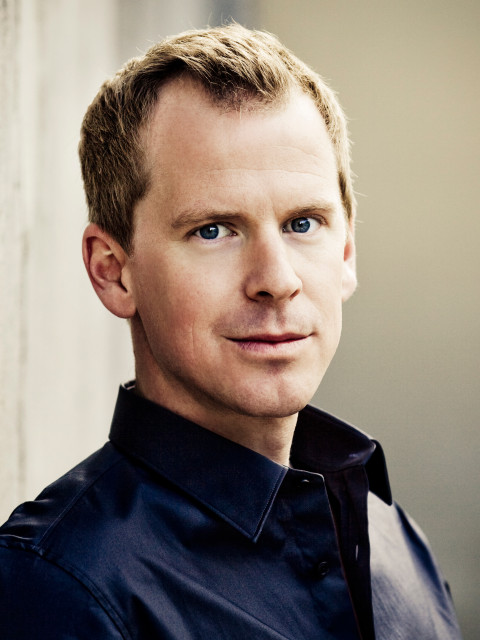
Founder of The Circular Materials GmbH, Karsten Bleymehl specializes in innovative materials for the circular economy. Formerly Director of Research at Material ConneXion in New York, he has advised global companies on sustainable product development. He teaches “Materials & Design” and “Sustainability & Circular Design” at universities in Europe. His work connects material science, design, and sustainable innovation, making him a strong asset in assessing material-focused projects.
City of Munich Department of Public Construction
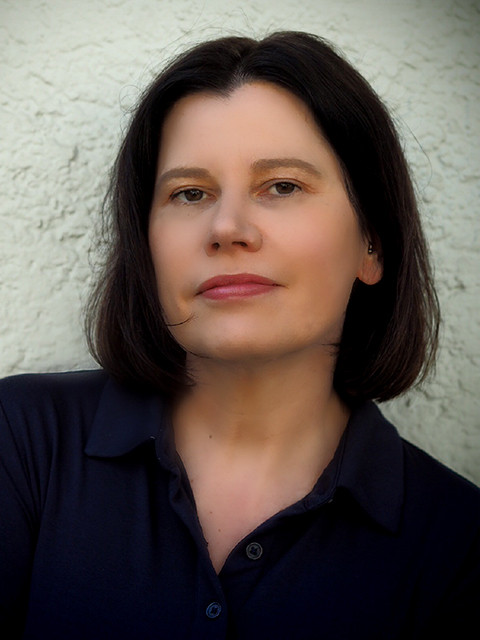
Communications expert in construction and architecture, Katja Reich joined the City of Munich’s Department of Public Construction in 2024. Previously, she led the editorial team at DBZ Deutsche Bauzeitschrift. With more than 20 years in publishing, she specializes in bridging architectural design standards with practical construction needs, offering valuable perspectives for sustainable building communication.
Academy of Fine Arts Warsaw

Industrial designer and professor at the Academy of Fine Arts Warsaw, Robert Pludra focuses on social design and sustainability. With over 15 years of experience, he has created award-winning projects such as nomadic furniture and the upcycled Barrel Armchair. Exhibited internationally in Milan, London, Berlin, and Tokyo, his minimalist yet socially useful work connects academic research with practical design. His expertise brings a strong human-centered perspective to the jury.
Centre for Sustainable Design
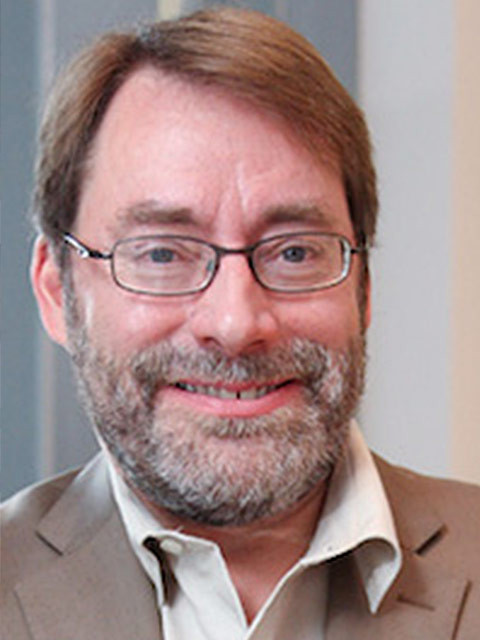
Founder and Director of the Centre for Sustainable Design at the University for the Creative Arts, UK, Martin Charter has over 25 years of expertise in sustainable innovation, product design, and new business models. He has advised organizations like Procter & Gamble and Interface, and organizes the long-running Sustainable Innovation conference series. A leading researcher and author, he contributes deep knowledge on sustainable business and product development.
Hochschule für Technik und Wirtschaft
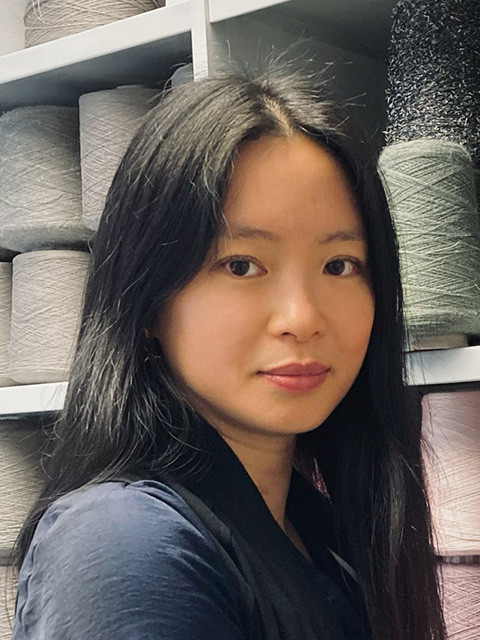
Head of the Knitting Lab at HTW Berlin, she combines textile innovation with sustainable production. Her research on circular material systems makes her a driving force for a resource-efficient textile future within the jury.
CEO nat-2™ | thies 1856 ®
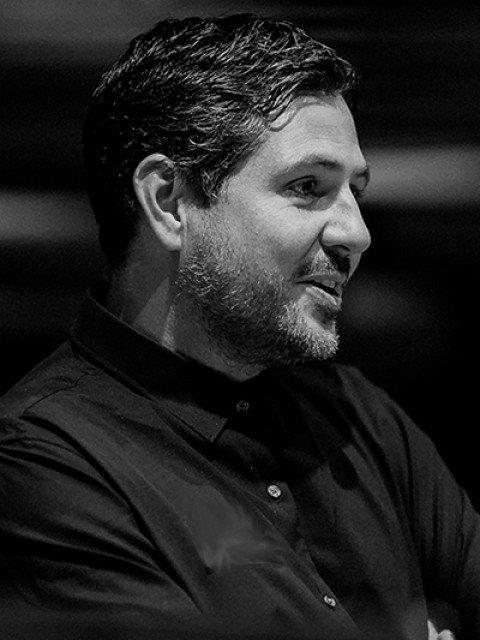
Sixth-generation shoemaker and founder of nat-2™, Sebastian Thies leads thies 1856®, a sustainable footwear and lifestyle brand. His designs, using innovative materials, are exhibited in international museums and have won awards including Red Dot and the German Brand Award. Recognized as a pioneer, he continues a family tradition of over 160 years in sustainable footwear.
Lund University, Sweden
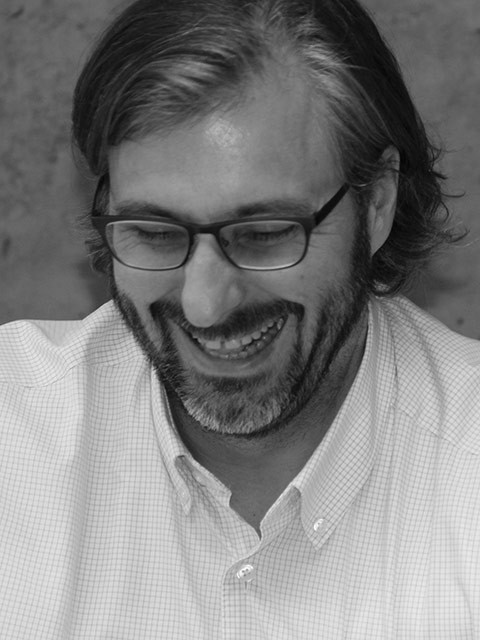
Professor of Lund University’s School of Industrial Design since 2001, Claus-Christian Eckhardt studied design in Braunschweig before working for Bosch, Blaupunkt, and Tenovis, where he became head of design. He also runs a freelance design practice. With a strong mix of academic leadership and corporate experience, he brings deep expertise in industrial design and innovation to the jury.
University of Oregon
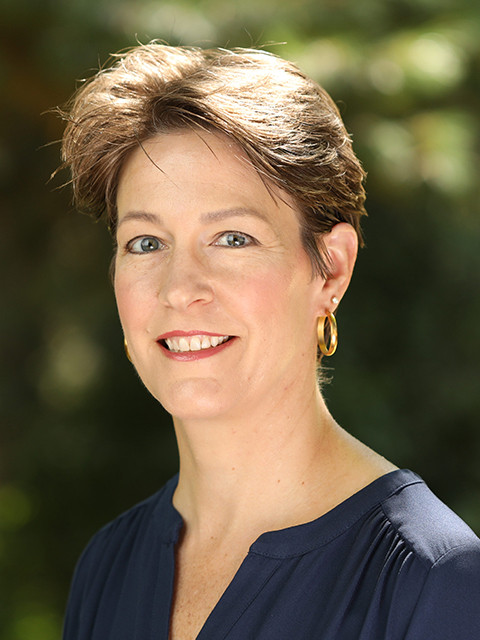
Associate Professor at the University of Oregon, Kiersten Muenchinger teaches product design with a focus on materials, manufacturing, and sustainability metrics. Her research measures how consumers perceive sustainability in materials, applying Kansei engineering methods. Formerly a designer with IDEO and Walt Disney Imagineering, she combines academic rigor with real-world design experience. She has been honored for her impact as an educator in sustainable design.
DOMESTIKA
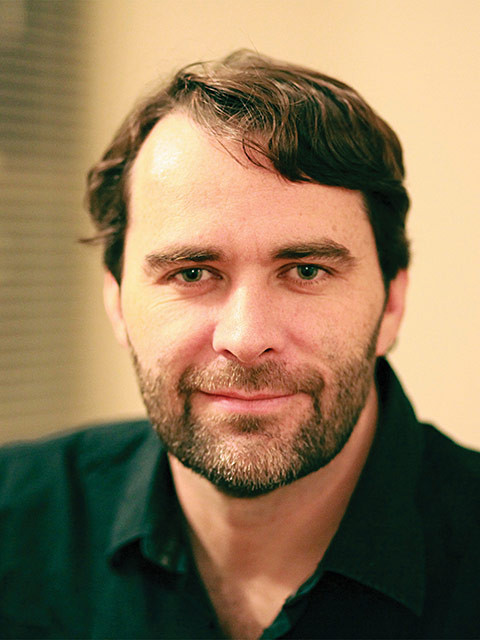
Editor and author, Julius Wiedemann has published more than 40 design and visual culture books with TASCHEN, including Product Design in the Sustainable Era. His works have sold over 1.5 million copies. Born in Brazil, he studied design and marketing and is recognized internationally as an authority on sustainable design communication and publishing.
ahead Media GmbH & Signatureplaces
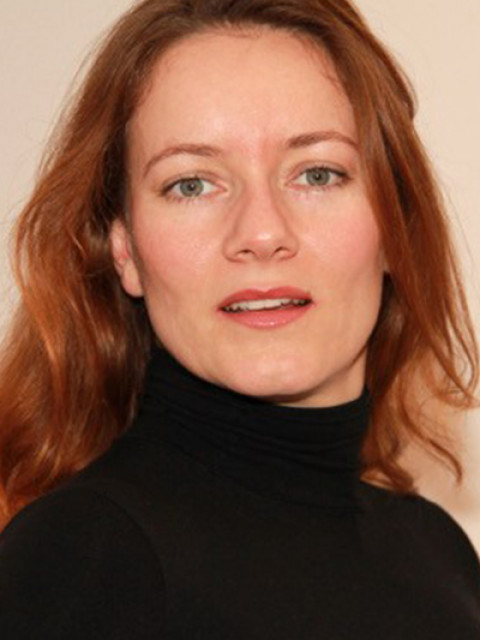
Angelika Müller, publisher of the leading design and living magazine H.O.M.E. in German-speaking countries, is considered a renowned voice in the international design and architecture world.
For almost 25 years, she has had a significant influence on design and lifestyle reporting with H.O.M.E. and the international licensed magazines domus and flair. Her extensive network in architecture, the creative industries, and the media sector, as well as her role as a juror for renowned design awards, underscore her expertise and international reputation.
She is also the CEO and founder of the digital design travel platform Signatureplaces.
InteriorPark.
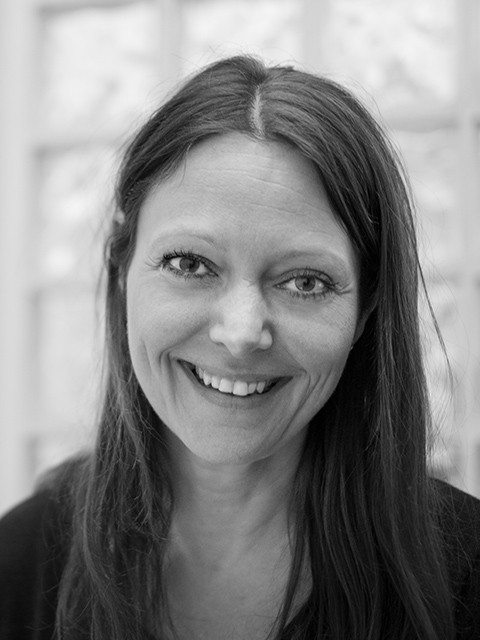
Co-founder of InteriorPark., Andrea Herold advises companies on developing sustainability strategies and reports aligned with GRI standards. She conducts workshops on market trends and helps businesses transparently communicate their progress. Her expertise bridges corporate strategy, sustainability communication, and design
Tsinghua University
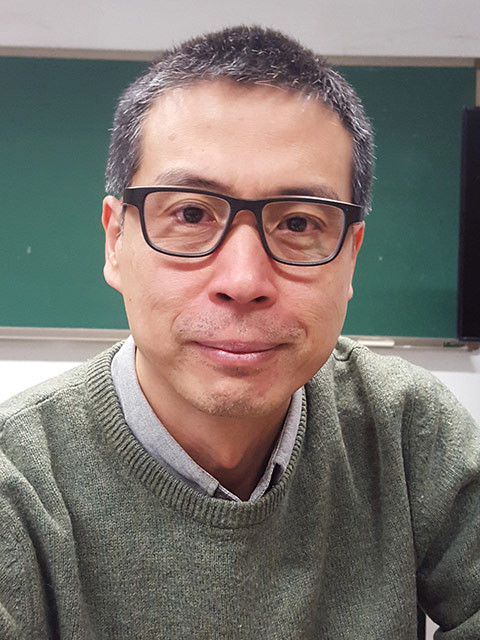
Vice Director of the Institute of Sustainable Design at Tsinghua University, Xin Liu specializes in sustainable design, user research, and product-service systems. He leads LeNS-China, a network of China’s top universities, and co-founded DESIS-China for social innovation. He also chairs the DESIS International Alliance Academy. With awards and leadership roles in education, he is a key academic authority in sustainable product-service innovation in Asia and beyond.
Berliner Senatsverwaltung für Wirtschaft, Energie und Betriebe, Head of Startup Affairs
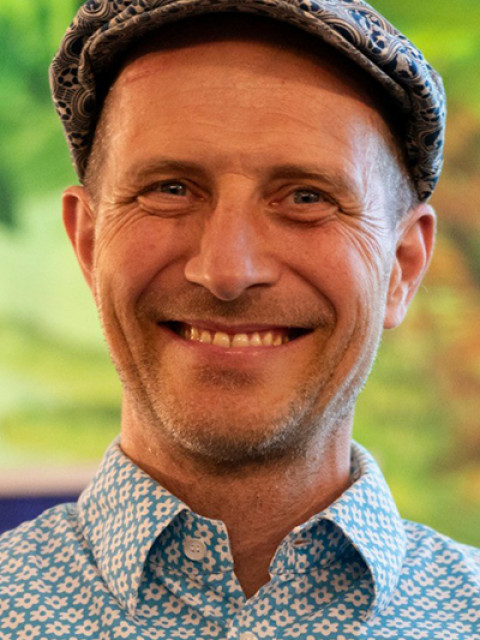
Norbert Herrmann is interface between Berlin public administration and the Berlin Startup Ecosystem and thus supporting Berlin as #CityOfCooperation.
InteriorPark.
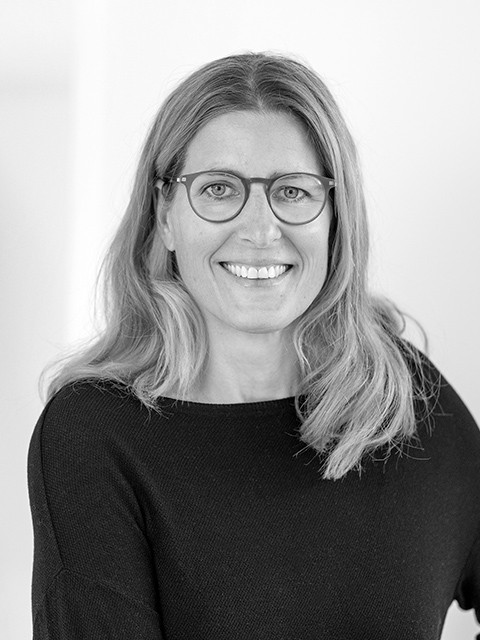
Architect, professor, and co-founder of InteriorPark., Tina Kammer has been active in sustainability since the 1980s. With a background in carpentry and brand architecture for companies like BMW and Hugo Boss, she later specialized in sustainable architecture and design. Today, she advises businesses, speaks at conferences, and teaches sustainable building. She is known for her holistic view and practical expertise.
Avocadostore.de

Sustainability Manager at Avocadostore.de, Johannes Hilla evaluates products and brands, develops sustainability criteria, and manages reporting. Previously, he worked with VEJA, focusing on brand positioning and sales in Germany. With degrees in economics and governance, he combines academic knowledge with practical experience in fair fashion and sustainable goods.
green Lifestyle
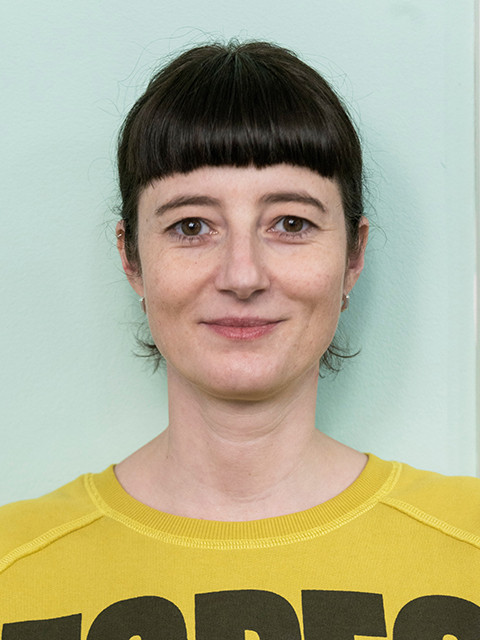
Editorial director of green Lifestyle, Petra Schmatz writes about eco-fair fashion, organic food, and sustainable living. She studied political science, economics, and law, and has worked at AVR Verlag since 2004. Personally committed to sustainable living, she views her editorial role as a chance to share green trends and inspire positive change. Her reporting connects consumer interests with innovative, eco-friendly solutions, making her a strong jury voice on sustainability communication.
Criteria & Submission
The winners will be evaluated and determined based on general and subject-specific criteria. In order to make it easier for you to highlight the special features of your submission, you can orient yourself on the criteria of the jury.
Need help? Download the Submission Guide (PDF)
or email us at service@gp-award.com
Create your profile and upload your project
now.
Overall rating
Approach
The originality, reproducibility and credibility are assessed.
Elaboration
Evaluated are the complexity of the analysis, the quality of the preparation and the way of implementation.
Impact
The potential for positive impact on the environment and/or society is considered.
Subject-specific reviews
Design
This is about the design as an overall approach with the following criteria: aesthetics, user-friendly functionality, economic and ecological constructions, possibly the interaction of product and packaging. The quality of communication with the consumer about sustainability is also considered.
Impact
To assess the innovation, it is examined whether a problem / need (better) is solved, the scale of what is new and how relevant it is. When submitting concepts, there is an additional focus on the respective business model.
Sustainability
Assessment takes place along all phases of the life cycle (concept / pre-production, production, distribution, use, reuse). Information on the material used is considered separately, as well as information on the production conditions.
Organized By
Green Future Club
The Green Future Club is a non-profit NGO and international competence network behind the Green Product and Concept Awards. Its independent jury of experts evaluates all submissions and awards the official seals, giving participants trusted third-party recognition.
Supported by IKEA Stiftung
Enabling the next generation of green innovators through free participation.
Powered by White Lobster
The creative agency behind the award’s implementation and execution.
